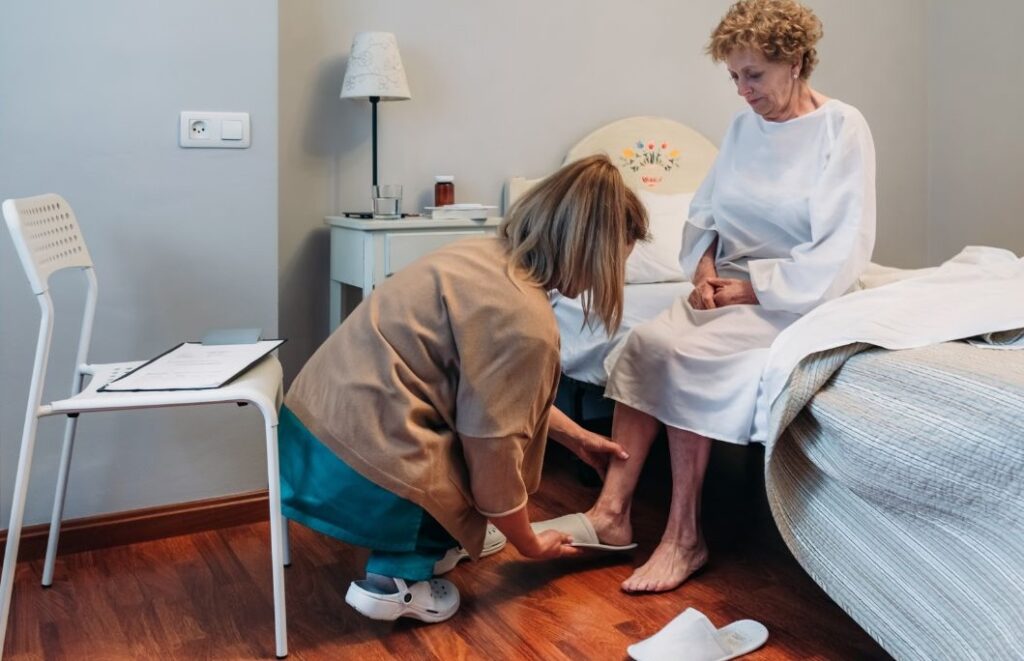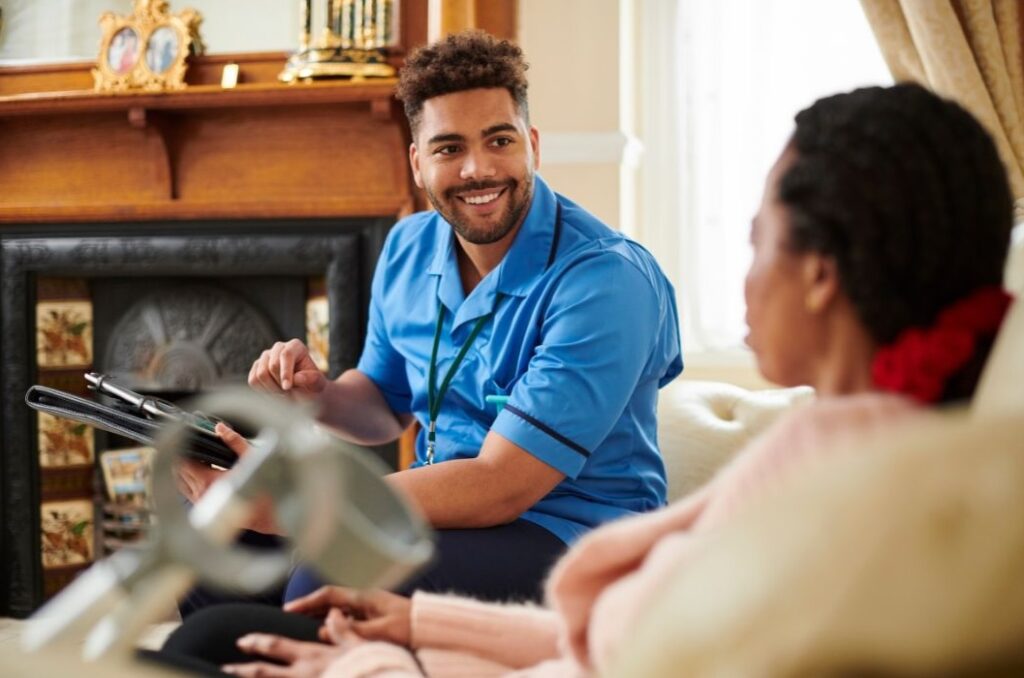If you’re considering a live-in carer for you or a loved one, you must find one who matches your or their needs. Equally, a live-in carer must possess the right qualities, such as empathy, patience, and professionalism, ensuring you or the individual feel physically, mentally, and emotionally supported.
IP Live in Care provides live-in carers who can support individuals with various conditions. Before exploring how we can help, continue reading to discover the most sought-after qualities of a live-in carer.
1. Empathy

A skilled carer possesses a unique blend of qualities crucial for effective caregiving. First and foremost is the ability to empathise with the challenges and emotions of the person in their care, demonstrating genuine concern for their well-being.
Effective communication is essential, requiring active listening and empathetic engagement to understand and address the individual’s needs.
Additionally, a proficient carer establishes a solid emotional connection, fostering trust and respect. The carer creates a compassionate and supportive caregiving experience through this holistic approach.
2. Reliability
Punctuality and reliability are critical traits of a live-in carer, ensuring timely and accurate execution of assigned tasks and responsibilities.
The ability to be relied upon independently is a testament to their competence, demonstrating a self-assured and responsible approach to caregiving duties.
Trust, a cornerstone of adequate care, is built through consistent and reliable behaviour. A carer who consistently upholds their commitments and responsibilities instils confidence in both the individual receiving care and their support network, fostering a sense of security and reliability essential for a positive caregiving experience.
3. Patience

A live-in carer possesses a remarkable level of patience, recognising that individuals under their care may require varying amounts of time and understanding.
This virtue extends beyond completing tasks to maintaining composure in challenging situations. A composed and collected demeanour in the face of difficulties is a hallmark of a skilled carer, ensuring a stable and reassuring presence for the person receiving care.
Effective communication is key to this, as a live-in carer takes the time to listen attentively and respond with empathy, ensuring that the individual feels heard and understood.
4. Adaptability
A proficient carer is characterised by their remarkable ability to adapt to changing needs and circumstances, a skill crucial for providing effective and responsive care.
A skilled carer demonstrates the ability to think on their feet and find creative solutions to unexpected challenges, ensuring a seamless and supportive caregiving experience.
Importantly, they adeptly navigate and adapt to the individual’s evolving health conditions, remaining flexible and responsive to the dynamic nature of caregiving.
5. Problem-Solving Abilities

An exceptional carer exhibits an analytical approach to problem-solving. They are capable of addressing unexpected situations effectively and remain composed under pressure, quickly assessing and responding to challenges.
Moreover, a skilled live-in carer goes beyond conventional problem-solving by actively seeking innovative solutions to address the diverse needs of those under their care. This creativity enhances the quality of assistance and contributes to a more enriching and tailored caregiving experience.
They also exhibit a resourceful mindset, efficiently utilising available resources to maximise support for the individual’s well-being.
6. Physical Fitness
A proficient carer recognises the physical demands of their role and, as such, prioritises maintaining optimal physical fitness.
This commitment is essential for tasks that may require strength and endurance, ensuring the carer can fully assist with various aspects of mobility and physical needs.
By prioritising personal health, a carer can sustain their well-being and enhance their ability to meet the challenges of caregiving with resilience and vitality.
7. Cultural Sensitivity

An exemplary live-in carer embraces a profound appreciation and respect for cultural differences. This involves adopting an open-minded approach that acknowledges and values individual differences without preconceived notions.
A live-in carer who possesses this quality appreciates cultural distinctions and actively adapts their caregiving practices to align with the unique preferences and traditions of those they are assisting. By doing so, they create a culturally sensitive and inclusive environment that fosters trust and comfort.
8. Professionalism
A live-in carer is steadfastly committed to upholding ethical standards in caregiving, recognising the paramount importance of trust and integrity in the carer-client relationship.
This commitment extends to the careful maintenance of confidentiality and a deep respect for the privacy of the individual receiving care.
A skilled carer establishes clear professional boundaries and ensures a balanced dynamic that fosters a respectful and supportive environment.
9. Friendly

An adept carer excels in providing physical assistance and cultivating a nurturing and supportive environment. They skillfully create a friendly and comfortable atmosphere, recognising its profound impact on the overall well-being of the individual under their care.
By fostering a positive and engaging relationship, a live-in carer goes beyond professional duties, seeking to establish a genuine connection that transcends the carer-client dynamic. This connection is built on friendliness and warmth, as the carer actively works to build rapport and trust.
10. Positivity
A live-in carer is distinguished by their ability to maintain a positive outlook, even in challenging situations. This positive demeanour extends beyond personal resilience to actively fostering a hopeful and constructive atmosphere for the person receiving care.
A proficient carer provides essential emotional support through uplifting and encouraging words, employing positive reinforcement to bolster the individual’s strengths and achievements.
By consistently boosting morale and highlighting positive aspects, they contribute significantly to the emotional well-being of those in their care.
Now you understand the qualities of a carer; remember, the ideal live-in carer possesses a combination of these qualities, and customisation is critical to ensuring a harmonious and effective caregiving arrangement.
IP Live in Care ensures an individual is matched with a live-in carer that complements their needs and personality. If you or a loved one require physical, mental, or emotional support, find a live-in carer today.

